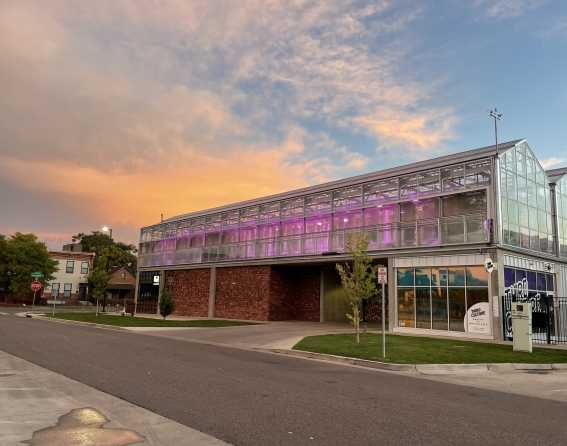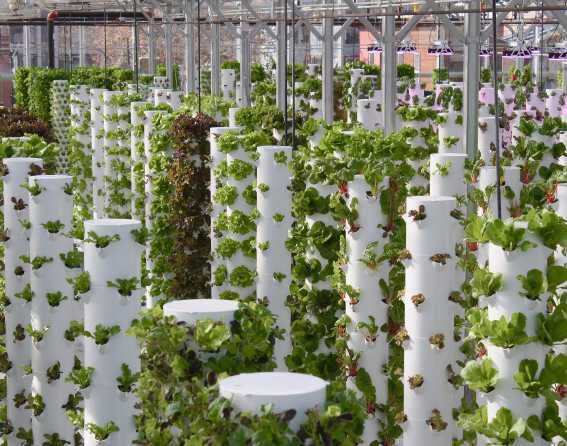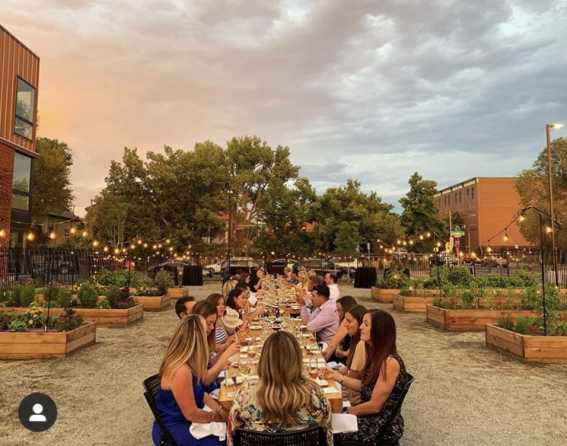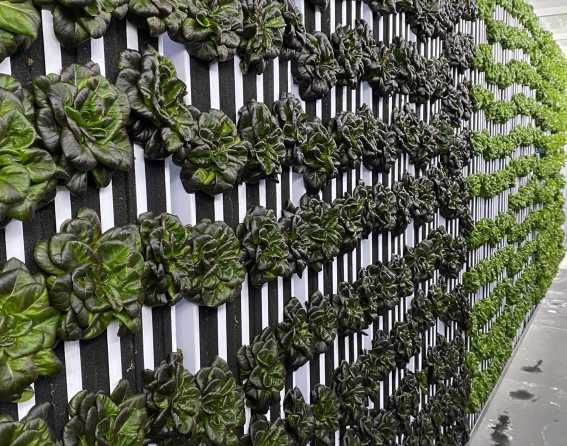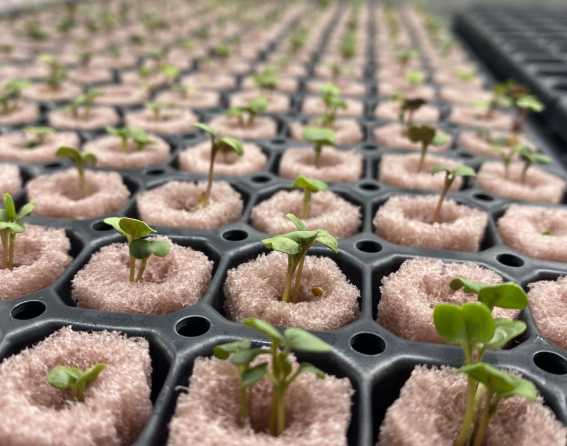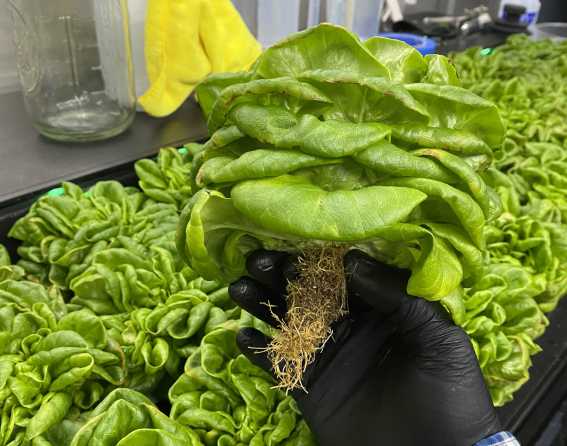Urban agriculture is poised to double its global output in the 2020s. The industry meshes hyperlocal production, sustainability and cutting-edge technology to grow and deliver the freshest possible produce to restaurants and consumers. In Denver, several farms are literally planting the seeds for long-term growth.
Ullr’s Garden is one of them. Located about five miles south of downtown in the Overland neighborhood, the operation has a pair of hydroponic farms in shipping containers. The operation is capable of producing 1,000 heads of lettuce every week or the equivalent of six acres of land. The lot, about a fifth of an acre, has room for seven more containers, meaning it could produce about the same as 27 acres of lettuce fields.
Founder and President Nick Millisor started Ullr’s Garden in 2020 along with his brother, Luke Millisor, and his cousin, Ian Randall. Nick Millisor says news of “eight climate disasters in a week” led him to transition from a career in real estate into urban agriculture.
“It just really hit home for me what living on a planet with climate change is going to look like,” he says.
After raising funds to acquire an old used car lot that was “just full of cars leaking oil onto the ground...the antithesis of a green business,” says Millisor, they named it for Ullr, the Norse snow god. They acquired the technology from Boston-based Freight Farms and launched a community-supported agriculture (CSA) program with lettuce and herbs in 2022.
The concept sidesteps Colorado’s short growing season as well as the looming threat of drought.
“This farm can grow 365 days a year and uses 95 percent less water,” he says.
Ullr’s Garden’s “Living Lettuce” is often in customer’s salads the same day of harvest, which Millisor calls “the epitome of farm to table.” That said, it also has a notably long shelf life.
“If you store your lettuce properly in the fridge, it can last up to four weeks,” he says. “I've literally eaten lettuce I harvested four weeks ago and it tastes just as good.”
“I can't eat lettuce that I don't grow anymore,” he adds. “It's ruined me at restaurants. I’ll order a salad and be like, ‘This kind of sucks.’”
Ullr’s Garden also sells through Pinemelon, and a retail interface is in the works at the farm in Overland. The concept is based on the old adage: Think globally, act locally.
“We're going to need 100 million tiny puzzle pieces to click in place to solve this thing,” says Millisor. “If we can create a couple more of those puzzle pieces out there, we would call that a win.”
It’s far from the only urban farm in Denver. Altius Farms founder and CEO Sally Herbert started growing produce above Uchi, a Japanese restaurant in the River North Art District (RiNo), in 2018.
“I just wanted to change the way that food was grown and bring food production closer to our points of consumption,” says Herbert, whose military background helped inform her career move.
Mission accomplished: The 7,200-square-foot rooftop farm harvests more than 30,000 pounds of produce annually.
“We’re at capacity right now, and we pretty much have always been at capacity,” says Herbert.
Altius supplies leafy greens and herbs to about 40 restaurants, including Uchi, Tavernetta and Leven Deli Co. The produce is also available through a CSA program and markets like Marczyk Fine Foods and Leevers Locavore.
The outdoor garden is available for events with up to 60 people; tours are not available.
While it’s not an easy job, Herbert says urban farming is rewarding — with a catch.
“You can change the game, and we certainly need to be thinking about this,” she says. “But with all candor, it’s pretty damned expensive and hard to make something like this work in a city center.”
Scheduled to open just two blocks away from Altius Farms in September 2023, Farm & Market is a new entrant in the city’s urban ag-scape. Founder Davis Breedlove worked largely in tech before launching the operation, but his passion was gardening.
“I had an itch to grow,” he says.
With more than 1,000 vertical towers that can support a dozen to 100 plants apiece, Farm & Market will have as many as 32,000 plants at any given time.
“We really pack them in,” says Breedlove.
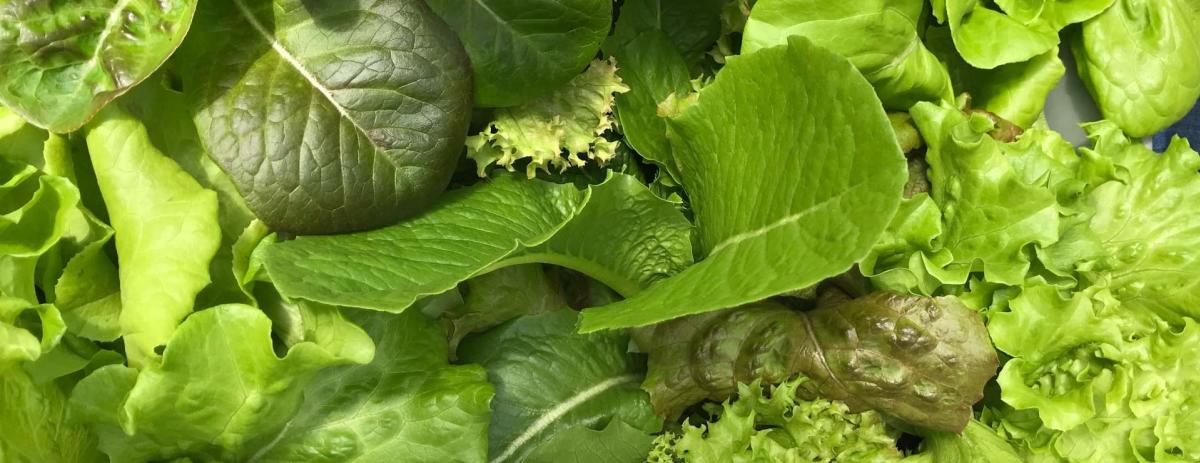 The pesticide- and herbicide-free operation uses 95 percent less water than a traditional farm, and the operation is 100 percent wind-powered. The 3,000-square-foot farm will grow 49 different plants to sell and serve fresh at its market and restaurant.
The pesticide- and herbicide-free operation uses 95 percent less water than a traditional farm, and the operation is 100 percent wind-powered. The 3,000-square-foot farm will grow 49 different plants to sell and serve fresh at its market and restaurant.
“The produce is unreal,” says Breedlove. “I strongly believe if people come in and they try it, we’ll win them over."
His personal favorite is the Mrs. Burns Lemon Basil, which he says, “Tastes and smells like Froot Loops. I loved Froot Loops as a kid, so I’m a little partial to it.”
Originally founded in 2014 and shuttered during the pandemic, Rebel Farm is rebooting in the Baker neighborhood. New owner James O’Brien recruited co-founder Lauren Brettschneider to help get the operation going again in an 8,400-square-foot warehouse space on Santa Fe Drive, with the possibility of a larger greenhouse at a separate location.
The target for the first harvest is fall 2023. O’Brien says he plans to sell the produce to restaurants and through Pinemelon once the farm is operational, and potentially offer event space.
“This is a passion project for me,” says O’Brien, whose day job is in wealth management. “I’ve had a real interest in urban farming and hydroponic farming for a number of years.”
He sees a path to growth for Rebel Farm and urban agriculture in Denver.
“I think it’s a very viable business model, and I think there’s a huge need,” says O’Brien. “Everything’s harvested in the morning and delivered that afternoon, so it’s fresh. There’s a shortage. I hear from the restaurants all the time, there’s just not enough local farms to source from.”
“I totally think it’s the wave of the future. It’s good for the environment and you’re producing healthy food for people to eat,” he adds. “It’s a win all around.”




